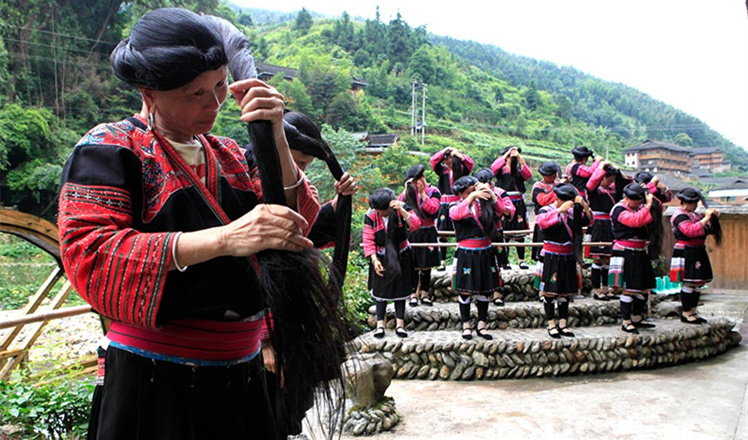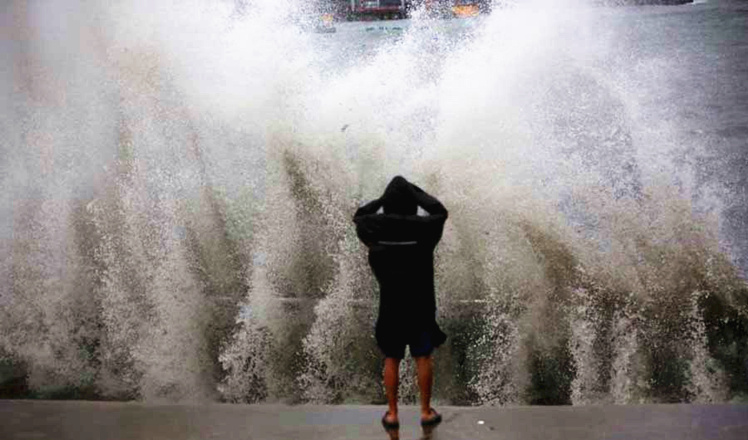Costly consequences of THAAD for Seoul
Updated: 2016-08-04 08:02
By Wang Junsheng(China Daily)
|
||||||||
In the mid-term ROK election on April 13, the ruling Saenuri Party became a minority. So it used THAAD to divert people's attention from the stagnant economy to national security, especially because the popular view in the ROK is that the US is a more reliable economic engine than China. THAAD can reassure ROK people of the US' support and protection even though the ROK leaders know it will invite threats, instead of safeguarding national security.
Responding to the opposition parties' criticism of THAAD, the Saenuri Party tried to stifle dissenting voices by saying opposing the missile system was equivalent to opposing national security protection. In other words, ROK leaders are keeping the people in the dark to ensure the deployment of THAAD.
During his meeting with ROK Prime Minister Hwang Kyo-ahn on June 29, President Xi Jinping emphasized China's stance and concern over THAAD's deployment in the ROK. To cushion Beijing's reaction, Seoul said the missile defence system will be deployed in southeast ROK, the farthest point from China, and its detection range will be shortened from 2,000 kilometers to 600-800 km. This is hogwash, for even if the first THAAD's range were only 200 km, it can be easily upgraded and more such systems are likely to be deployed in the ROK.
Seoul's calculations about the deal are wrong, and it has jeopardized its neighbors' security in exchange for the protection of a faraway ally. It is an irony that the ROK considers itself an independent medium-level world power but still looks to other countries for protection.
THAAD will stoke an arms race on the Korean Peninsula, which is against the peaceful reunification goal of the ROK government. China and Russia will not sit idle while the US continues to play its strategic games, and the ROK will become a target in any conflict that ensues. Worse, THAAD will weaken Sino-US mutual trust and harm Sino-ROK economic and trade ties.
The situation the THAAD game will lead to will be too costly for the ROK.
The author is a researcher in Asia-Pacific strategy at the Chinese Academy of Social Sciences.
- Paragliding fans fly over Rigi mountain in Switzerland
- DPRK fires 1 ballistic missile into east waters
- Tokyo's white paper on defense policy 'full of lies'
- Syrian gov't, opposition trade accusation of alleged chemical attacks
- Obama calls Republican nominee Trump "unfit" to be president
- 5 feared dead as Russian helicopter shot down

 Serbian artist creates incredible 3-D art
Serbian artist creates incredible 3-D art
 Glimpse into the work and life of G20 guards
Glimpse into the work and life of G20 guards
 Shopping and throwing Frisbee in virtual reality
Shopping and throwing Frisbee in virtual reality
 Take a closer look at the life in Rio Olympic Village
Take a closer look at the life in Rio Olympic Village
 From dusk to dawn: The other side of Beijing
From dusk to dawn: The other side of Beijing
 Huangluo: China's 'long hair village'
Huangluo: China's 'long hair village'
 Typhoon Nida lashes Shenzhen
Typhoon Nida lashes Shenzhen
 Amazing robots work hard at Qingdao beer fest
Amazing robots work hard at Qingdao beer fest
Most Viewed
Editor's Picks

|

|

|

|

|

|
Today's Top News
US launches airstrikes against IS targets in Libya's Sirte
Ministry slams US-Korean THAAD deployment
Two police officers shot at protest in Dallas
Abe's blame game reveals his policies failing to get results
Ending wildlife trafficking must be policy priority in Asia
Effects of supply-side reform take time to be seen
Chinese State Councilor Yang Jiechi to meet Kerry
Chinese stocks surge on back of MSCI rumors
US Weekly

|

|







